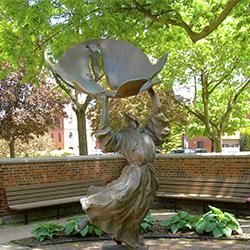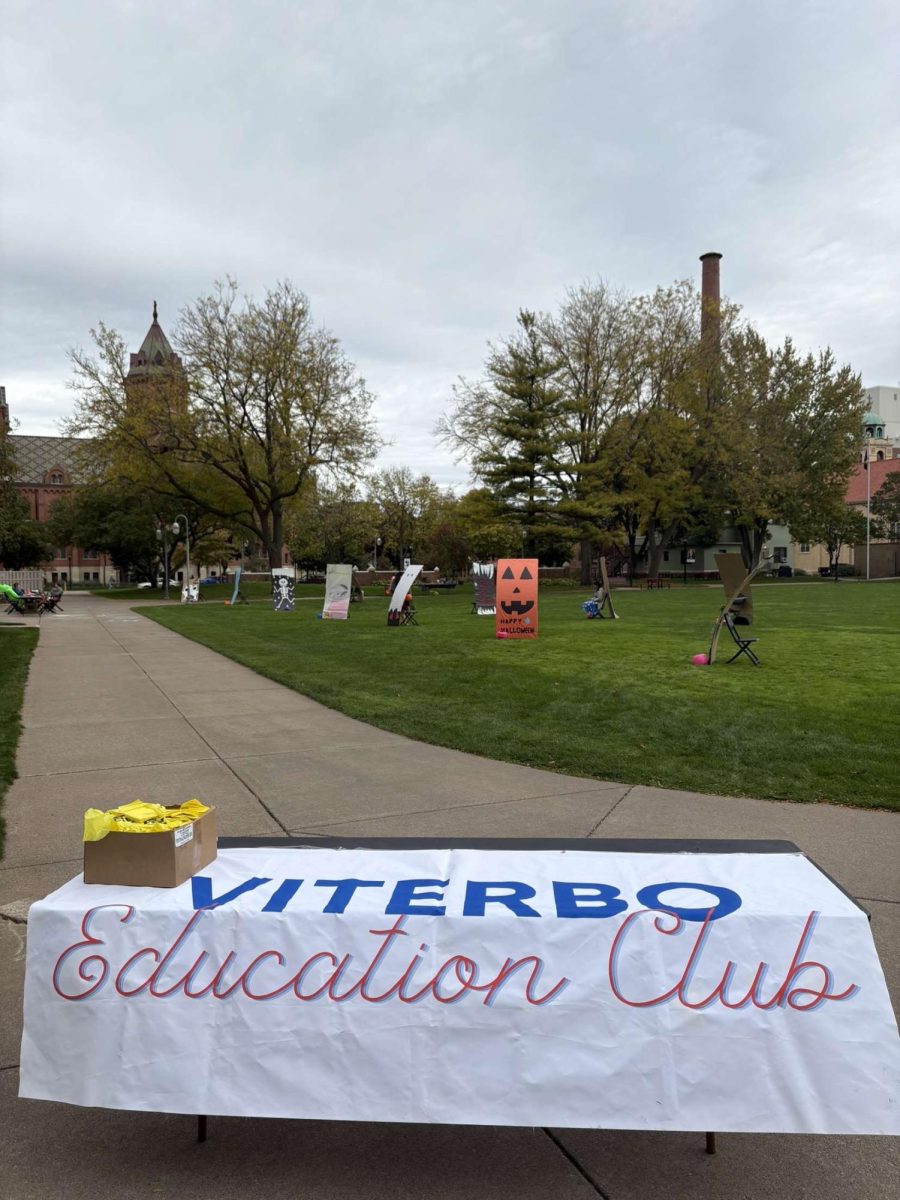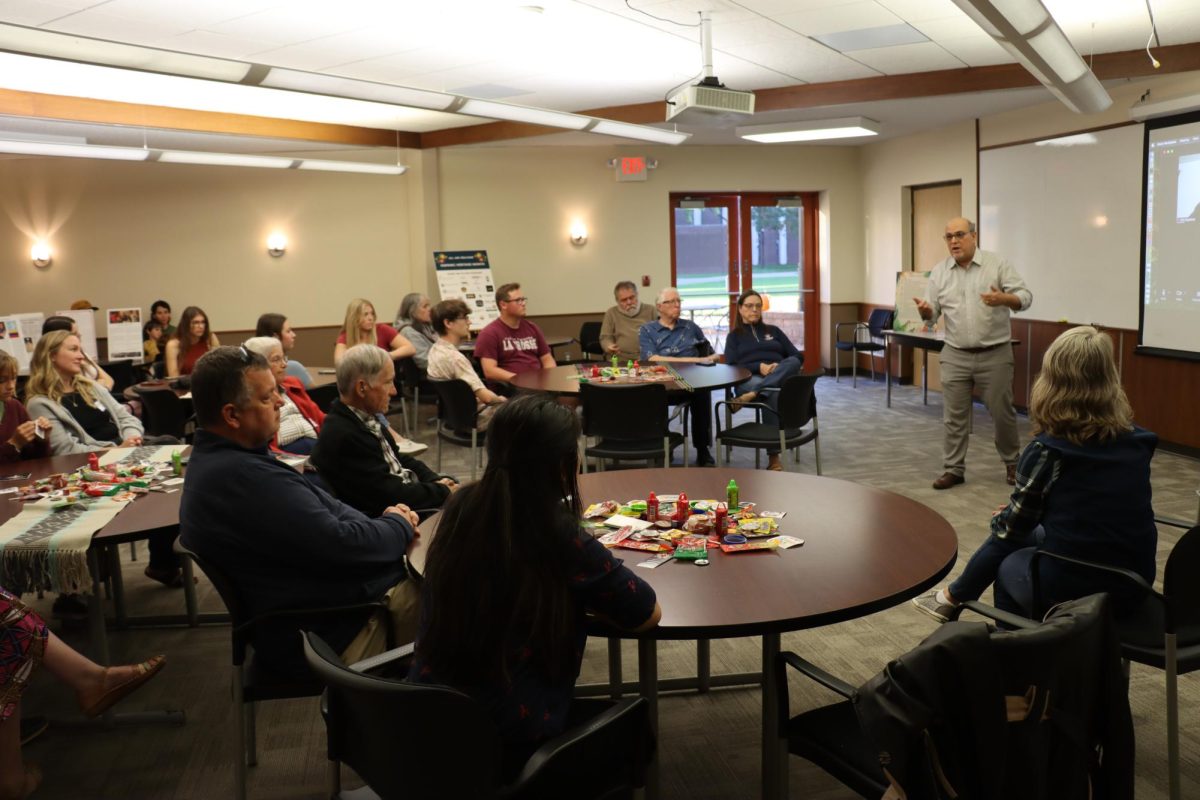On October 6, Viterbo and the D.B. Reinhart institute partnered with the Franciscan Sisters of Perpetual Adoration, FSPA, to present a history of the FSPA and Viterbo. Sister Mary Ann Gschwind provided a concise three-part segment of the history, from the beginning up to present events. The presentation was originally scheduled for March 19 in the Fine Arts Main Theater. “The whole world stopped the day before, so we are a few months behind, but I’m glad it could be rescheduled,” Sr. Gschwind said.
The lecture was set in conjunction with Viterbo’s Saint Francis week and heritage days for Mayo Clinic. Viterbo was founded on Franciscan values, which are contemplation, hospitality, stewardship, integrity, and service. These values were seen even in the beginning starting with the Foundress Mother Aemiliana. Aemiliana was from Bavaria and believed in educating immigrant children. She also believed in spreading the gospel though education. In order to gain access to her dowry she married Joseph Zahler; the two had a mutual agreement to stay celibate, so the marriage was never consummated. On May 28, 1849, two priests, eight women, and six men, one of which was Mother Aemiliana, arrived in Milwaukee, Wis. This was just one year after Wisconsin was declared a state.
In 1856, the Diocese of Milwaukee opened the seminary. During this time, women did all the manual labor such as the cooking and cleaning. In 1878, sisters began the practice of perpetual adoration. The FSPA website states, “Through perpetual eucharistic adoration, we offer God continuous praise and thanksgiving before the Blessed Sacrament exposed on the altar. Nurtured and strengthened by Jesus’ presence, we live out this adoration in our daily lives as we strive to help those in need.” It is through the sisters’ devotion and their prayer that they are able to inspire and help so many people. Since Aug 1, 1878, the sisters have prayed for over 1,246, 464 hours.
In 1890, the FSPA founded St. Rose Normal School, which would later become Viterbo College. The normal school was set as a model for the way teachers should teach and was intended to be the ‘norm’ of education. In 1937, St. Rose became Viterbo college. In 1943, the college expanded to include women beyond the FSPA. In 1954, Viterbo was accredited as a liberal arts college. It wasn’t until 1971 that Viterbo College became coeducational. Viterbo College became Viterbo University in 2000.
The FSPA has been overseeing everything since the beginning. In 2018, they decided to take a step back and give the overseeing to Viterbo ministry. Even so, their presence on campus and in the classroom is invaluable.


